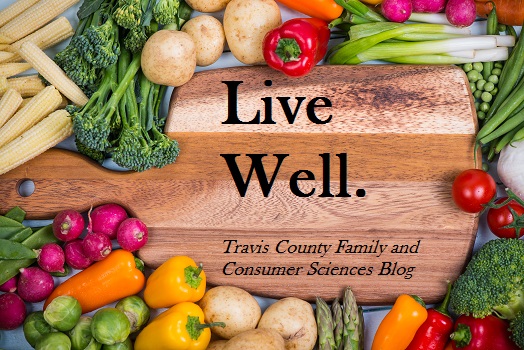By: Amanda Schroeder
Cinnamon is one of the oldest spices in the world. For thousands of years, it has been a staple, not only in our diets, but also in traditional medicine. Did you know that the Egyptians used cinnamon in their embalming process? And the Romans regularly used it as a digestive aid and a remedy to respiratory issues. It was so popular, in fact, that Christopher Columbus and Vasco de Gama actually began their famous explorations, in part, to find and cultivate more cinnamon!1 So, what made it so popular? Well, for starters, it’s delicious! I can’t remember the last time I ate oatmeal without cinnamon. And don’t even get me started on cinnamon in banana smoothies! (Seriously. Try it!) In addition to its delightful flavor, its health benefits were widely recognized in many different parts of the world. Back then, the evidence of its health-promoting properties was merely anecdotal, but scientific research has advanced and expanded tremendously! We now have real life evidence that cinnamon is a spicy rock star! Want to know what makes this yummy fall favorite so great? I thought you’d never ask! Keep reading and you just might find yourself craving cinnamon a little more often!
- It could reduce your blood sugar. A study published in 2012 explored the fasting blood sugar levels of rats for 30 days. Each day, half of the rats received a dosage of cinnamon extract 30 minutes before their first meal, while the other half did not. The study found that after 10 days, the cinnamon group had fasting blood sugar levels that were around 10% lower than the other group. On day 30, their levels were about 22% lower than their cinnamon lacking counterparts! While the dosage of cinnamon extract in this study was quite high (about 270 mg per pound of body weight) and I doubt any of you are rats, these are very promising statistics!2 In 2010, 11.6% of the global healthcare costs were attributed to diabetes.3 And the risk of developing type II diabetes is significantly correlated with extended periods of high blood sugar. Is cinnamon a magical cure? Certainly not, but there is enough evidence to suggest that adding a little to your morning oats might be a good idea!
- It is a powerful antioxidant. “Antioxidant” is quite the buzz word these days, but for good reason! (Click here to find out why!) In 2006, various antioxidant abilities of cinnamon were compared to those of BHA, a common synthetic antioxidant added to foods. In each of the three tests, including total antioxidant ability, cinnamon extract demonstrated a faster a higher level of antioxidant ability than BHA.4 Every time! Another study ranked the antioxidant abilities of cinnamon bark as better than vitamin C!5
- It could preserve your memory. Memory loss is, unfortunately, more common than any of us would like and it is particularly common as we age. (And I’m not just referring to the type of memory loss that makes you late to work because you’ve misplaced your keys!) The thought of losing your precious memories is overwhelming, to say the least, but evidence is emerging that cinnamon might be able to help! In a study from 2007, rats were treated with an amnesia-inducing drug that works in a similar fashion to Alzheimer’s disease. Cinnamon extract (at a dose of about 90-180 mg per pound of body weight) was able to completely reverse the loss of memory associated with this drug! 6 Don’t get me wrong, there is still nowhere near enough evidence to indicate that cinnamon can reverse the memory loss associated with Alzheimer’s disease in humans, but the findings are significant!
As per usual, always talk to your healthcare professional before beginning any type of supplementation program. Cinnamon is generally recognized as safe, according to the FDA, and has shown very few instances of negative side effects. It is important to note, though, that you should be especially cautious of cinnamon supplementation if you are taking any blood thinning medications, like Warfarin. A compound found in cinnamon, coumarin, also has blood thinning effects and can be dangerous when combined with pharmaceutical blood thinners. If you do decide on supplementation (or you just want to eat more cinnamon), look for C. zeylanicum or C. verum. These have the lowest coumarin content and are far less likely to interact with these medications.
Need an excuse to eat more cinnamon? Try out these recipes!
References
- Kawatra P, Rajagopalan R. Cinnamon : Mystic powers of a minute ingredient. 2015;7. doi:10.4103/0974-8490.157990.
- Ranasinghe P, Gunatilake M, Gunapala N, et al. Effects of Cinnamomum zeylanicum (Ceylon cinnamon) on blood glucose and lipids in a diabetic and healthy rat model. Pharmacognosy Res. 2012;4(2):73. doi:10.4103/0974-8490.94719.
- Ranasinghe P, Jayawardana R, Galappaththy P, Constantine GR, de Vas Gunawardana N, Katulanda P. Efficacy and safety of “true” cinnamon ( Cinnamomum zeylanicum ) as a pharmaceutical agent in diabetes: a systematic review and meta-analysis. Diabet Med. 2012;29(12):1480-1492. doi:10.1111/j.1464-5491.2012.03718.x.
- Mathew S, Abraham TE. Studies on the antioxidant activities of cinnamon (Cinnamomum verum) bark extracts, through various in vitro models. Food Chem. 2006;94(4):520-528. doi:10.1016/j.foodchem.2004.11.043.
- Chericoni S, Prieto JM, Iacopini P, Cioni P, Morelli I. In vitro activity of the essential oil of Cinnamomum zeylanicum and eugenol in peroxynitrite-induced oxidative processes. J Agric Food Chem. 2005;53:4762-4765. doi:10.1021/jf050183e.
- Kumar A, Naidu PS, Seghal N, Padi SS V. Effect of curcumin on intracerebroventricular colchicine-induced cognitive impairment and oxidative stress in rats. J Med Food. 2007;10(0):486-494. doi:10.1089/jmf.2006.076.
